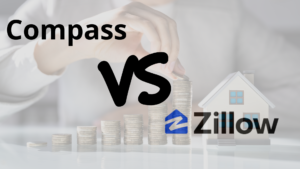Buying a home vs. building one—it’s a tough call, especially in 2025 when real estate prices, material costs, and mortgage rates are all over the place. Cost comparison of buying vs. building a home Some say it’s cheaper to buy, while others swear by the long-term savings of building. Which way actually makes the most sense?
If you’re stuck between signing on the dotted line for a pre-built home or starting from scratch, you’re not alone. There’s the budget, timelines, interest rates, and even personal preferences to think about. And let’s be real—you don’t want to put all your money into something only to regret it later.
Table of Contents
ToggleIs It Cheaper to Buy or Build a Home in 2025?
Short answer: It depends. Location, market dynamics, interest rates, and your personal timeline all factor in.
Buying a Home
When you buy an existing home in 2025, the main costs include:
- Purchase Price: The U.S. median home price is projected around $420,000, but varies widely by location.
- Closing Costs: Expect to pay between 2% and 5% of the home’s price in lender fees, title insurance, and taxes.
- Mortgage Interest: At 6% to 7%, long-term interest can significantly increase the total cost over 30 years.
- Repairs and Renovations: Older homes may require immediate investments—like a $10,000 roof replacement or a $5,000 electrical upgrade.
Buying is generally quicker. You can move into a finished home, in an established neighborhood, without dealing with contractors or permits. However, you may face competition from other buyers, have limited layout options, and take on higher long-term maintenance.
Building a Home
If you’re considering building, your costs will likely include:
- Land Purchase: Depending on the area, land can range from $50,000 to $250,000 or more.
- Construction Costs: Building a home in 2025 may cost between $300,000 and $500,000, depending on design, labor, and materials.
- Permits and Site Work: These add another $10,000 to $50,000 depending on location and complexity.
- Customization: You get to design your dream layout—but premium features can raise the price quickly.
- Construction Financing: Short-term loans often carry higher interest rates than traditional mortgages.
Building gives you control over every detail, from energy-efficient materials to smart home systems. The downside? It usually takes 6 to 12 months (or more) before you can move in, and there’s always the risk of cost overruns or delays.
Which Option Offers Better Long-Term Value?
If you’re focused on long-term savings and value growth, building may have the edge:
- Lower Maintenance Costs: New homes need fewer repairs in the early years.
- Energy Efficiency: Newer builds are outfitted with modern insulation, HVAC systems, and energy-saving appliances that reduce monthly bills.
- Higher Resale Potential: Custom homes built with desirable features may appreciate faster, especially in fast-growing regions.
That said, buying can still offer solid value—especially if you find a well-maintained home in a stable or undervalued neighborhood. The ability to lock in a mortgage quickly and avoid construction risks may be worth the trade-off.
Should You Build or Buy? It Depends on Your Priorities.
You may want to build if:
- You want to customize every feature of your home.
- You’re planning to stay long-term.
- You’re flexible on move-in timing.
- You prioritize energy efficiency and new tech.
You may prefer to buy if:
- You need to move in quickly.
- You want to avoid the stress of construction.
- You prefer established neighborhoods with known amenities.
- You’re looking to minimize up-front costs.
Frequently Asked Questions
Is it cheaper to buy or build in 2025?
It depends on your local market. In areas with rising resale home prices and available land, building could be more affordable. In regions where labor is expensive or land is scarce, buying might save more.
How long does it take to build a home right now?
Typically, 6 to 12 months—but delays are possible due to weather, permitting issues, labor shortages, or supply chain disruptions.
What are the hidden costs of buying a home?
Closing costs, maintenance, renovations, and HOA fees can add thousands to the total price over time.
Final Takeaway: What’s the Better Financial Decision in 2025?
There’s no universal answer. The better financial move—buying or building—depends on your budget, goals, and risk tolerance.
- Build if you value customization, modern features, and lower long-term maintenance.
- Buy if you want speed, lower up-front costs, and less risk of construction delays.
Before deciding, evaluate your local market, run the numbers carefully, and consider how long you plan to stay in the home.
